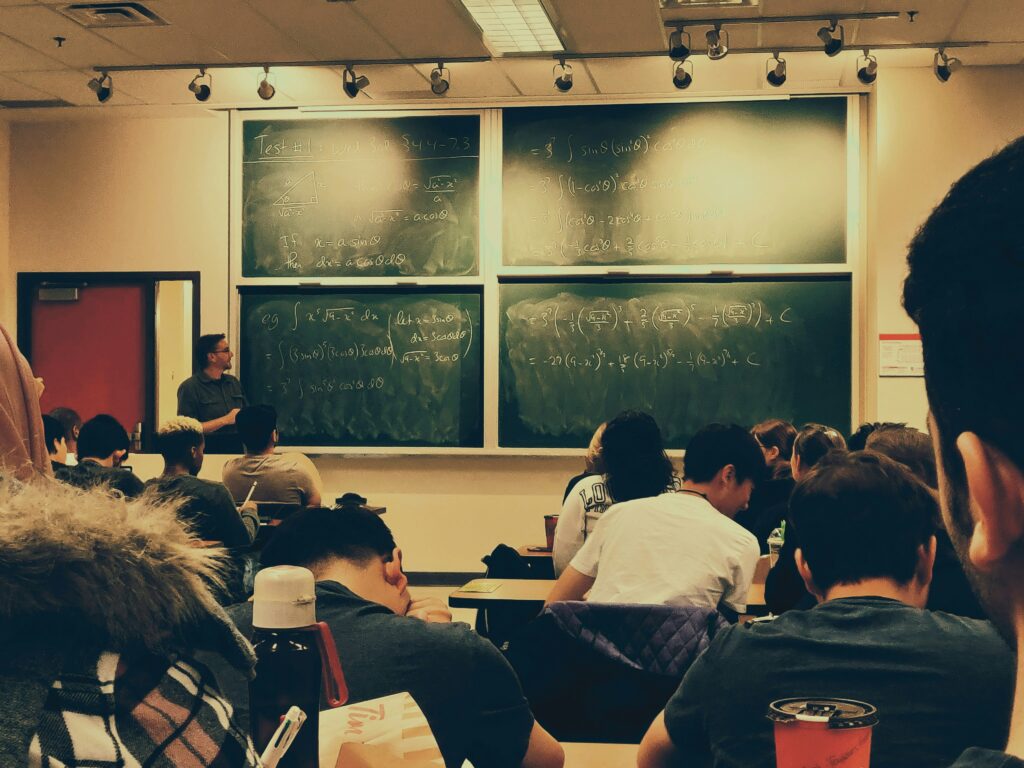By: Shawn English, with ChatGPT (-3.5), Open AI {https://openai.com}
Lately, mental health issues among college students have become a significant concern. Anxiety and depression, in particular, are especially prevalent in this group. The transition from high school to college is a critical period that involves big changes, challenges, and stress. This blog explores the reasons behind the high incidence of anxiety and depression among college students, the contributing factors, and potential solutions to address these mental health issues.
The Prevalence of Anxiety and Depression

The prevalence of anxiety and depression among college students is notably high. According to the Spring 2023 data from the American College Health Association’s National College Health Assessment (ACHA-NCHA), approximately 60% of college students reported experiencing overwhelming anxiety in the past year. Additionally, about 40% of these students reported feeling so depressed that it was difficult to function (American College Health Association). These statistics illustrate a significant mental health crisis within the college student population.
Additionally, data from the Healthy Minds Study for the 2022-2023 academic year found that 39% of students screened positive for anxiety and 34% for depression. These findings emphasize the urgency of addressing mental health issues among college students to promote their overall well-being and academic success.
Factors Contributing to Anxiety and Depression
Several factors contribute to the high levels of anxiety and depression among college students:
1. Academic Pressure:
The academic environment in colleges is often highly competitive and demanding. Students face constant pressure to excel in their studies, maintain high grades, and secure future career opportunities. The fear of failure and the pressure to succeed can lead to significant stress and anxiety.
2. Financial Stress:
The cost of college education has been rising steadily, leading to financial problems for many students. The need to pay student loans, work part-time jobs, and manage personal finances can add to the stress. Financial insecurity is a significant source of anxiety and can contribute to depression.
3. Social Challenges:
College life involves adapting to new social environments and forming new relationships. The pressure to fit in and make new friends can be overwhelming. Feelings of loneliness and social isolation are common among college students and can cause anxiety and depression.
4. Major Life Transitions:
The transition from high school to college represents a significant life change. Students often move away from home, leaving behind their familiar support systems. This sense of separation and the need to establish independence can be stressful and lead to feelings of anxiety and depression.
5. Identity and Self-Discovery:
College is a time when many students explore their identities and make important life decisions. Questions about career paths, personal values, and future goals can create a sense of uncertainty and stress. The process of self-discovery, while essential, can also come with anxiety and confusion.
6. Technology and Social Media:
The excessive use of technology and social media can also contribute to mental health issues. While these platforms can offer support and connection, they can also lead to negative comparisons, cyberbullying, and addiction. Being constantly exposed to the seemingly perfect lives of other people can cause feelings of inadequacy.
The Impact of Anxiety and Depression
The impact of anxiety and depression on college students is profound. These mental health issues can affect their academic performance, relationships, and well-being. Students with anxiety and depression may struggle to concentrate, have decreased motivation, and have difficulty managing their time and responsibilities. This can lead to a cycle of poor academic performance, increased stress, and worsening mental health.
On top of this, anxiety and depression can affect physical health. Chronic stress and anxiety can lead to physical symptoms such as headaches, fatigue, and digestive issues. Depression can also affect sleep patterns, appetite, and energy levels, further impacting students’ ability to function effectively.
Addressing Mental Health Issues Among College Students
Addressing anxiety and depression among college students requires a tactical approach. Several strategies can help with these mental health issues:
1. Mental Health Services:
Colleges and universities should provide accessible mental health services. This includes counseling centers, mental health hotlines, and online resources. Trained professionals can offer support, therapy, and guidance to students dealing with anxiety and depression.

2. Peer Support Networks:
Creating peer support networks can provide students with a sense of community and belonging. Counselors, support groups, and student organizations focused on mental health can offer valuable support and reduce feelings of isolation.
3. Academic Support:
Providing academic support services such as tutoring, study groups, and academic advising can help reduce the amount of academic pressure. These resources can assist students in managing their work and improving their academic performance, reducing stress and anxiety.
4. Promoting a Healthy Lifestyle:
Maintaining a healthy lifestyle is crucial for mental well-being. Regular physical activity, a balanced diet, and getting enough sleep can have a positive impact on mental health. Colleges can promote wellness through fitness programs, healthy dining options, and sleep education.
5. Reducing Stigma:
Addressing the stigma associated with mental health issues is essential. Colleges should promote awareness and education about mental health to create an environment where students feel comfortable seeking help. Campaigns, workshops, and open discussions can help reduce stigma and encourage students to prioritize their mental health.
6. Financial Support:
Providing financial support and resources can alleviate the financial stress that many students face. Scholarships, grants, and financial advising services can help students manage their finances and reduce anxiety related to financial insecurity.
The high incidence of anxiety and depression among college students is a pressing issue that requires attention and action. The unique challenges and stressors of college life contribute to these mental health issues, impacting students’ academic performance and overall well-being. By implementing the strategies discussed, colleges and universities can create an environment that supports mental well-being and helps students thrive.
Start Working With An Anxiety and Depression Therapist in Boulder, CO
 Addressing mental health issues among college students is not only essential for their success in college but also for their long-term health and well-being. You can receive the support you deserve with our team of caring therapists. You can learn more about North Boulder Counseling and how it can help you by following these simple steps:
Addressing mental health issues among college students is not only essential for their success in college but also for their long-term health and well-being. You can receive the support you deserve with our team of caring therapists. You can learn more about North Boulder Counseling and how it can help you by following these simple steps:
- Contact us to request an appointment.
- Learn more about our therapists
- Start making the most of the college experience!
Other Services Offered with North Boulder Counseling
Our team understands that you may experience multiple mental health concerns at one time. This is why we are happy to offer support for a variety of mental health issues with both in-person therapy and online therapy across the state. In addition to depression therapy, we also offer support with ketamine therapy, anxiety treatment, play therapy, postpartum anxiety treatment, postpartum depression counseling, perinatal support, counseling for women, counseling for men, parenting coaching, grief counseling, trauma treatment and EMDR, depression treatment, teen therapy, and LGTBQ counseling. Please visit our blog or our about us page to learn more helpful information.




